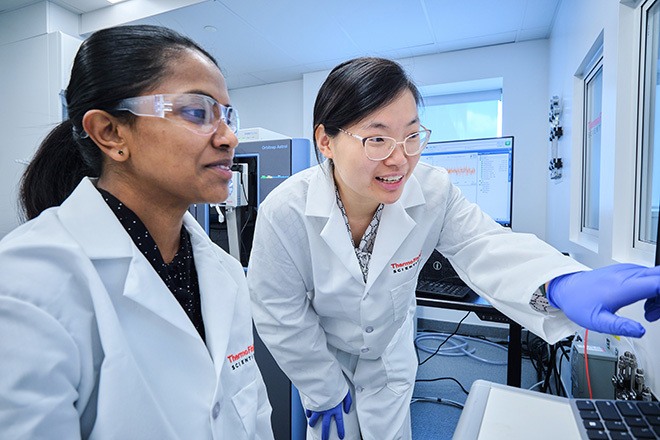
What Is a CRO?
Pharmaceutical, biotechnology and medical device companies initiate, manage and fund clinical trials and are ultimately responsible for the clinical trial process. They are referred to as sponsors. Clinical trial sponsors also include government agencies, such as the National Institutes of Health (NIH) in the United States, and non-profit organizations.
The research and development process for a single drug can require the participation of thousands of people. It may take as long as 15 years to bring a new drug to market and the average cost can exceed $1 billion. It is a long, complex and expensive process, and many sponsors are not equipped, resourced or prepared to perform all trial-related duties and functions themselves.
For this reason, sponsors may choose to outsource all or part of the trial-related tasks to a company called a contract research organization (CRO) – sometimes called a clinical research organization – to manage the clinical trial on their behalf, without sponsors having to maintain a staff for these services. CROs have the capacity to conduct the day-to-day research activities that are either not possible or too expensive for a sponsor to achieve in-house. CROs are experts in the space and active partners in clinical research.
CROs in the United States
the size that the global CRO market size is expected to reach, in dollars, in 2023

What is a CRO’s role in pharmaceutical development?
CROs play a major role in ensuring safe, ethical clinical trials that are essential to developing new, life-changing drugs and medical devices that benefit millions of patients worldwide.
The services that a CRO may offer can cover the full timeline of the study:
- Study start-up includes:
- The development and revision of protocols for trials
- The adaptation of the necessary documentation to the applicable rules
- Obtaining the necessary approvals from clinical research ethics committees and regulatory authorities
- The design and preparation of case report forms
- The determination of the sample
- The selection of the best researchers and research centers
- The final negotiation of the contracts among all parties (the CRO, vendors and sites).
- Once regulatory approval is obtained and the trial begins with site selection and patient recruitment, the CRO can provide monitoring, which consists of controlling compliance with the protocol and the procedures established for the development of the study. Likewise, pharmacovigilance services include detection and action in case of any adverse event (AE).
- The last steps to ensure the success of any clinical study are the statistical analysis and management of the trial data, the generation of reports (including the clinical study report for submission to regulatory authorities for drug approval) and the control and storage of the documentation.
CRO structure
A Contract Research Organization (CRO) acts as a bridge between the sponsor, the one who contracts the services, and the rest of the actors involved in the clinical trial.
(Leon Research, https://leonresearch.com/what-is-a-cro-and-how-can-it-help-you-in-your-clinical-trial/)

Functions of a Contract Research Organization
Typically, a CRO provides scientific, clinical and business continuity for clinical trial sponsors. The CRO can be involved in a range of services from pre-clinical research (which takes place before human trials) to post-marketing surveillance (which takes place after a product has been approved for use).
Other administrative activities may include strategic consulting and protocol development, laboratory and analytical services, project management, trial logistics, medicine and disease coding, statistical analysis and reporting, validation programming, safety and efficacy summaries and the final study report.

Clinical research and trial management
A sponsor hires a CRO to plan, coordinate, execute and manage the life cycle of the clinical trial safely and efficiently. Serving as the main contact between the sponsor and other stakeholders throughout the trial, the CRO communicates with ethics and compliance committees, regulatory personnel, vendors, physicians and research coordinators.
Every day counts for both patients (who may be anxiously waiting on therapies that could improve or even save their lives) and sponsors (because time spent in the development process counts against the patent protection period after the drug goes to market, affecting sales revenue).


Global and specialized CRO services
Most large CROs are full-service, providing complete clinical trial management support, but there are some companies specializing in a specific type of study (e.g., research with medical devices or observational studies) and also CROs specializing in a specific therapeutic area, such as oncology or ophthalmology.
Global CROs, large companies with operations all over the world, provide greater, integrated geographical coverage, with more service offerings and capabilities, while local companies may sometimes have more in-depth knowledge of a particular country’s nuances and demographics as they relate to clinical development.

CRO FAQ
What is the difference between a CRO and a sponsor?
Although the sponsoring company may transfer the trial functions to a CRO, the sponsor owns the investigational product and needs to ensure results are factual and scientifically backed.
According to the definition of the International Council on Harmonisation of Technical Requirements for Registration of Pharmaceuticals for Human Use (ICH), a CRO is: “A person or an organization (commercial, academic or other) contracted by the sponsor to perform one or more of a sponsor’s trial-related duties and functions.”
The sponsor maintains a central role throughout the clinical trial process. Although regulatory tasks differ globally, they include initiating the trial process by submitting an application and ensuring approval is obtained (directly or indirectly).
The ICH Guideline for GCP specifies the responsibilities a CRO can take over from a sponsor:
- 5.2.1: A sponsor may transfer any or all of the sponsor’s trial-related duties and functions to a CRO, but the ultimate responsibility for the quality and integrity of the trial data always resides with the sponsor. The CRO should implement quality assurance and quality control.
- 5.2.2: Any trial-related duty and function that is transferred to and assumed by a CRO should be specified in writing. The sponsor should ensure oversight of any trial-related duties and functions carried out on its behalf, including trial-related duties and functions that are subcontracted to another party by the sponsor’s contracted CRO(s).
- 5.2.3: Any trial-related duties and functions not specifically transferred to and assumed by a CRO are retained by the sponsor.
- 5.2.4: All references to a sponsor in this guideline also apply to a CRO to the extent that a CRO has assumed the trial-related duties and functions of a sponsor.
What are the advantages of outsourcing to a CRO?
A CRO can offer substantial cost savings for a sponsor by reducing the time it takes to conduct a trial compared to a sponsor doing so in-house. This also eliminates the need for staff, infrastructure and lab and office space for the sponsor to run the trials themselves. Finally, a full-service CRO can provide access to a global network of clinical research sites, meaning it can quickly identify suitable sites for clinical trials in multiple countries. Geographical reach or therapeutic focus can be important in patient recruitment, especially in specific populations, such as underserved and diverse , or for rare diseases that affect a small subset of people.
Working with a CRO gives sponsors access to the most advanced technology and systems for data management, product development, research analysis and other clinical research services. CROs are quick to adopt the latest technologies, enabling them to provide strategic insights and advice, and to offer novel and distinctive ways to use advanced tools and adapt them to each sponsor’s needs to ensure optimal clinical trial performance. Given that CROs work with many different sponsors, they often have a breadth of experience beyond even a single large pharmaceutical company.
CROs adhere to clinical compliance on a daily basis, which requires intricate in-house knowledge of regulatory requirements and audits such as GCP (Good Clinical Practice) or GLP (Good Laboratory Practice) audits.
Sponsors conducting clinical research in a niche area such as rare disease may choose to work with a specialty CRO or a global CRO with offering such services.
Global network
We have an extensive global network of investigators, clinicians and partners with a wide range of products, technologies and services that can be leveraged for clinical trial conduct. Our goal is to deliver considerable time and cost savings in drug development, critical to accelerating the delivery of life-changing therapies. Our experts consider the end before the beginning by envisioning and planning for commercialization and market acceptance well before the first patient is enrolled in a clinical trial. And before trials are underway, we design for post-approval, real-world patient observation that provides support for payer authorizations and may lead to new ideas and products.
How does a sponsor select a CRO?
When selecting a CRO, here are some questions to consider:
- Can the CRO offer the services that the sponsor needs?
- Does the CRO have related experience and a good track record (i.e., similar projects and references or testimonials from satisfied clients)?
- Is the CRO financially stable?
- Does the CRO have a good system for employee training and a low staff turnover rate?
- Does the CRO have the key staff members required and can it set up a team to deliver qualified results?
- Does the CRO have the required infrastructure?
- Does the CRO have a robust quality assurance system?
- Is the CRO’s team responsive and willing to work with you and communicate throughout the project?
- Does the CRO have specialty services, laboratories, digital and decentralized solutions, a clinical supplies network and other capabilities important to your drug development program?
- Will the CRO help you recruit and manage safety boards or committees?
- Will the CRO conduct audits to help you prepare to pass FDA inspections?
- Can the CRO provide general site support and project management help in addition to clinical monitoring?
- Does the CRO function as a vendor or a true partner?

Drive your drug development program forward
Partner with a leading, global provider of CRO solutions that leverages a proven track record and deep expertise to keep the patient at the forefront of your trial.
The PPD clinical research business of Thermo Fisher Scientific accelerates your success with a dynamic, forward-thinking approach, a comprehensive suite of capabilities and true partnership with our customers.

